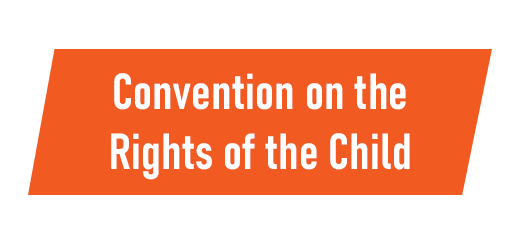JOINT STATEMENT: The Ministry of Migration and Asylum must rescind the eviction order of people on the move from camps
Ιn early May, Greek media reported that the Ministry of Migration and Asylum issued a verbal directive to the authorities of refugee camps across Greece to evict beneficiaries of International Protection as well as rejected asylum seekers from their facilities.
High risk of destitution for various groups of people
The notice of the decision did not include guidance on appropriate alternative accommodation solutions or safeguards to avoid people falling into destitution. Compounded by long-standing issues accessing state support outside of camp facilities as well as the diminishing capacity of civil society to fill protection gaps, the decision risks placing various groups of people into precarious situations at odds with the fulfilment of their fundamental rights as well as respect for human dignity.
On both the mainland and islands, organisations have been in contact with people who were informed of their imminent eviction or who have already been removed. While beneficiaries of International Protection are legally obliged to vacate state temporary camp-based accommodation 30 days after receiving a positive decision - a timeframe that is often not sufficient for the state administration to issue all the documents necessary for them to access alternative accommodation - integration support outside of the camps is limited. The Helios+ programme’s implementation began only recently, following the conclusion of its predecessor, and is currently in its early stages, with the application period opening on 26 May 2025. As a result, access to accommodation is not yet available. The programme is designed to serve a fraction of Greece’s refugee population, and will require sustainable funding to avoid the interruption of its services. Moreover, there are considerations with regard to its short-term nature, specific eligibility requirements and potential bureaucratic barriers. In addition, high risk of homelessness and destitution persist among beneficiaries of international protection, due to the gap that arises after 30 days from the issuance of a positive decision or discharge from a facility, until access to Helios housing becomes available. Along with Greece’s housing crisis and rising prices, sudden eviction will mean that people who have been granted protection in Greece will face significant challenges finding suitable alternative accommodation, potentially increasing their insecurity.
Those without recognised status have little to no access to support outside the camps, which puts them in an even more precarious situation. Those who have had their asylum application rejected are particularly disadvantaged, as they are unable to access formal employment, healthcare or social allowances. For many, this is compounded by the threat of arrest and prolonged pre-removal detention, while returns to countries of origin or transit remain largely impeded if not effectively suspended for most countries of origin. These circumstances plunge people into legal limbo and extreme living conditions. Evictions are equally problematic when they do not take ongoing legal procedures into account, an issue which has been flagged by many applicants. This can be the case when applicants have appealed against rejection decisions in Greek Administrative Courts - with or without state funded legal aid - as procedures are riddled with extensive delays. Combined with the lack of effective communication pathways with the Greek asylum authorities, these factors have a disproportionate impact on applicants’ living conditions. Consequently, remaining in camps is the only possibility they have to avoid homelessness, informal employment and the accompanying risks of abuse, exploitation, trafficking, and extended detention. Individuals who have made subsequent applications are also at risk: they already have limited access to reception conditions at the discretion of the authorities. Evictions also risk placing this group, as well as those waiting to make such applications but facing delays caused by a lack of state-provided interpretation services, at an even greater risk of destitution.
Short-notice periods with limited alternative options for support
In some instances, organisations report that camp authorities informed people of their removal a week in advance. In others, people were informed only the day before, and were not able to retrieve all their belongings before eviction. Elsewhere, pending removal, people have been internally transferred within the facilities. For instance, on Lesvos, beneficiaries of International Protection have been relocated from ISO containers to more remote areas of the camp, into tents shared with unrelated people, increasing their precarity and risks to their physical and mental health. Mobile Info Team (MIT) is also in contact with persons, including families with young children, who have applications pending for migration residence permits and have been given eviction notice accompanied by threats, increasing their anxiety:
“[T]he camp director called us again to leave, and if we do not get a house, he will bring the police on us [...].”
- Testimony from a man residing in a camp in the Athens area, who was notified of the coming eviction of his family, including three minor children
In the same vein, the Greek Council for Refugees (GCR) recently requested the extension of the provision of accommodation in a camp facility for a 7-member Afghan family, including a pregnant woman and two children with respiratory issues. Despite their multiple and urgent vulnerabilities, the family is no longer officially permitted to remain in the facility after the 30-day deadline, and for now have no access to alternative state accommodation.
Considering long-lasting gaps in the provision of state accommodation, non-state actors have, over the years, spent millions to provide alternative solutions. In recent years, Love Without Borders for Refugees in Need and its partner organisations estimated they had spent an average of €2.1 million annually to provide accommodation services. However, shelters face structural capacity shortages and can require a waiting time of several weeks to access. In addition, the substantial drop in funding for civil society organisations providing these housing alternatives means that many have seen a decrease in their accommodation capacity. MIT has been in contact with several shelters which all reported having no capacity to accommodate new people:
“For the last eight years, housing has been our central focus. However, due to significant losses in funding, we are now at risk of being unable to sustain our efforts in the long term [...] We encourage more accountability for the Greek government and the European Commission.”
- Kayra Martinez, founder of Love Without Borders for Refugees in Need
Municipal homeless shelters are also often no solution, as some have strict eligibility requirements including the possession of valid documents that lengthy bureaucracy can make hard to obtain, as well as a knowledge of Greek or English. The remote location of most camp facilities further limits people’s ability to access information or find suitable alternative accommodation, especially considering no regular transportation is organised by the Ministry of Migration and Asylum to reach cities, and therefore essential services.
Finally, while some persons may have the right to work, people on the move are often only able to find work characterised by substandard labour conditions and low wages insufficient to afford renting private accommodation. This adds significantly to the pressure placed upon people notified of their coming eviction, especially those in more vulnerable situations. For example, the same person MIT is currently in contact with above reported not earning enough to be self-sufficient, and being notified that him and his family will be evicted from a camp in the Athens region:
“Are there any organizations that can help us get a house or help us with a portion of the house price? They ask for a lot for rent and I cannot afford everything because my work fees are not good and my family is large.”
For all of these reasons, alternatives to camps are very often effectively inaccessible, increasing the risk of homelessness. As in the past, the call from the Ministry risks that people are subjected to unsafe alternatives, either sleeping rough, erecting informal settlements or squatting in overcrowded flats. These undignified conditions carry the further risk of intimidation and violence by the authorities, who have conducted raids on squats and makeshift camps.
As a consequence, evictions from state-run facilities could place people into situations carrying tangible risks to the protection of their fundamental rights. For children whose stay in camps enables them to attend school, eviction risks interrupting their education, as well as placing working adults into a situation where it may be impossible to maintain their employment. For persons in vulnerable situations - women, children and persons with disabilities or health conditions - their eviction from camps may expose them to severe forms of harm. These include retraumatisation, exploitation, human trafficking and police violence, raising the risk of inhuman and degrading treatment and infringing on the best interests of the child, where relevant, in contravention of both EU and international law.
The undersigned organisations call on the Ministry of Migration and Asylum:
To rescind the eviction order of people on the move from camps;
To ensure that if people are removed, this happens only where they have secured a safe and appropriate housing alternative that guarantees they will not end up destitute and homeless and enables them to access their rights in a manner that respects their human dignity;
To implement a sustainable and dignified framework of support and integration that ensures appropriate accommodation for people on the move, whatever their legal status, during, and after their stay in temporary reception facilities.
Signatories
Mobile Info Team
Equal Legal Aid
Greek Council for Refugees
Refugee Legal Support
Fenix - Humanitarian Legal Aid
Legal Centre Lesvos
Drapen i Havet
Drapen i Havet Stagona
Greek Forum of Refugees
HIAS Greece
Symbiosis-Council of Europe School of Political Studies
Love Without Borders for Refugees in Need
Refcheckpoint
SafePlace Greece
Project Armonia
Defence for Children
Arsis Association for the Social Support of Youth
Collective Aid
Samos Volunteers
Network for Children’s Rights
EmpowerVan
Equal Rights Beyond Borders
ECHO100PLUS
INTERSOS HELLAS
I Have Rights
NAOMI Ecumenical Workshop for Refugees
MKO Meraki Humanitarian Support
Second Tree
Changemakers Lab
Γιατροί Χωρίς Σύνορα-Ελληνικό Τμήμα/Doctors Without Borders-Greek Section Boat Refugee Foundation
About Us
The Network for Children’s Rights acquired non-profit organisation status in 2004, but actually began as an informal action group four years earlier with the aim of raising awareness of problems relating to the righs of children and interceding in order to solve them. It encourages initiatives and actions to ensure that the UN International Convention on the Rights of the Child is implemented in Greece, to guarantee respect for diversity and to put an end to discrimination.
More
Contact InfoContact Form





